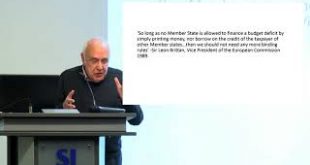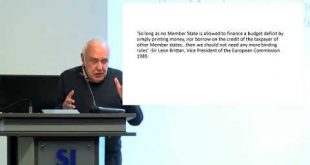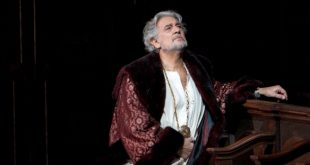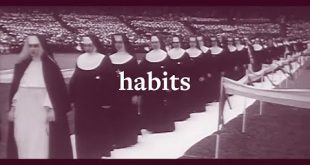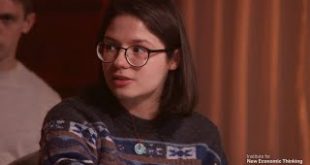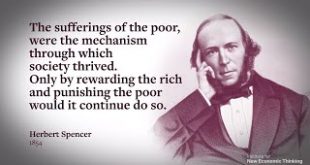The most depressing feature of the current explosion in robot-apocalypse literature is that it rarely transcends the world of work. Almost every day, news articles appear detailing some new round of layoffs. In the broader debate, there are apparently only two camps: those who believe that automation will usher in a world of enriched jobs for all, and those who fear it will make most of the workforce redundant. This bifurcation reflects the fact that “working for a living” has been the...
Read More »A Post-Election Reckoning for British Politics
Leaving the European Union on January 31, 2020, will be UK Prime Minister Boris Johnson’s repayment of the debt he owes to the many Labour supporters who “lent” his Conservatives their votes. But “getting Brexit done” won’t be enough for the Tories to hold on to their parliamentary seats.LONDON – Speaking outside No. 10 Downing Street following his emphatic election victory, British Prime Minister Boris Johnson thanked long-time Labour supporters for having “lent” his Conservative Party...
Read More »China’s Quest for Legitimacy
December 3, 2019 The conventional Western view is that China faces the alternatives of integrating with the West, trying to destroy it, or succumbing to domestic violence and chaos. But the Chinese scholar Lanxin Xiang instead proposes a constitutional regime based on a modernized Confucianism.LONDON – Liberal democracy faces a legitimacy crisis, or so we are repeatedly told. People distrust government by liberal elites, and increasingly believe that the democracy on offer is a sham. This...
Read More »15 Robert Skidelsky What will it take for the Euro to survive another twenty years
PLENARY SESSION III: THE EURO AT 30? INSTITUTIONAL CHALLENGES Chair: Andrew Watt, IMK Macroeconomic Policy Institute Fiscal and financial conditions for a stronger euro area Vitor Constancio, former European Central Bank What will it take for the Euro to survive another twenty years? Robert Skidelsky The Case for a Green New Deal for Europe Ann Pettifor, Policy Research in Macroeconomics (PRIME) 2019 marks the...
Read More »15 Robert Skidelsky What will it take for the Euro to survive another twenty years
PLENARY SESSION III: THE EURO AT 30? INSTITUTIONAL CHALLENGES Chair: Andrew Watt, IMK Macroeconomic Policy Institute Fiscal and financial conditions for a stronger euro area Vitor Constancio, former European Central Bank What will it take for the Euro to survive another twenty years? Robert Skidelsky The Case for a Green New Deal for Europe Ann Pettifor, Policy Research in Macroeconomics (PRIME) 2019 marks the...
Read More »Placido Domingo: cancel culture?
‘People who do really good stuff have flaws’ said Barack Obama in a recent talk. About the same time I read: ‘Placido Domingo has withdrawn from all future engagements at New York’s Metropolittan Opera [after 51 consecutive years] following allegations of sexual harrassment made by several women, including a soprano who said he reached down her robe and grabbed her bare breast’.[The Week,5 October 2019] Domingo’s burnished tenor and acting ability has thrilled generations of opera...
Read More »How to Achieve Shorter Working Hours
I have great pleasure in presenting this report on shorter working hours, which John McDonnell asked me to prepare, and which I have written with the valuable assistance of Rachel Kay. I accepted John’s invitation because shorter working hours is something I believe in. In fact, I wrote a book with my son, How Much is Enough?, which made the case for reducing the burden of work as part of the good life. The philosophy of this Report is quite simple. The advance of technology – the...
Read More »How Can Sociology Help Economics? | How & How NOT to Do Economics with Robert Skidelsky
In economics the key behavioral idea is individual self-interest. In sociology it is the social “norm.” The first abstracts from society. The second presupposes it. In this seventh lecture in INET’s “How and How Not to Do Economics,” Robert Skidelsky looks at economics’ relationship with sociology. INET sincerely thanks the Julis-Rabinowitz Family for their generous support, who named this series to honor the spirit of a great educator and economic thinker, Uwe Reinhardt. For nearly 50...
Read More »[DISCUSSION] How Can Sociology Help Economics? | How & How NOT to Do Economics | Robert Skidelsky
Following Robert Skidelsky’s lecture “How Can Sociology Help Economics?” he leads a discussion with students. INET sincerely thanks the Julis-Rabinowitz Family for their generous support, who named this series to honor the spirit of a great educator and economic thinker, Uwe Reinhardt. For nearly 50 years, the late Uwe Reinhardt was a beloved economist and professor at Princeton University. Known best for helping to shape critical discourse around healthcare markets,...
Read More »Ethics & Economics | How & How NOT to Do Economics with Robert Skidelsky
In 1983 University of Chicago economist George Stigler proclaimed “The economist doesn’t need ethics; only arithmetic. His task is to clear up social mistakes.” In this eleventh and final lecture in INET’s “How and How Not to Do Economics,” Robert Skidelsky takes a different view of ethics’ place in economics. INET sincerely thanks the Julis-Rabinowitz Family for their generous support, who named this series to honor the spirit of a great educator...
Read More » Robert Skidelsky
Robert Skidelsky


